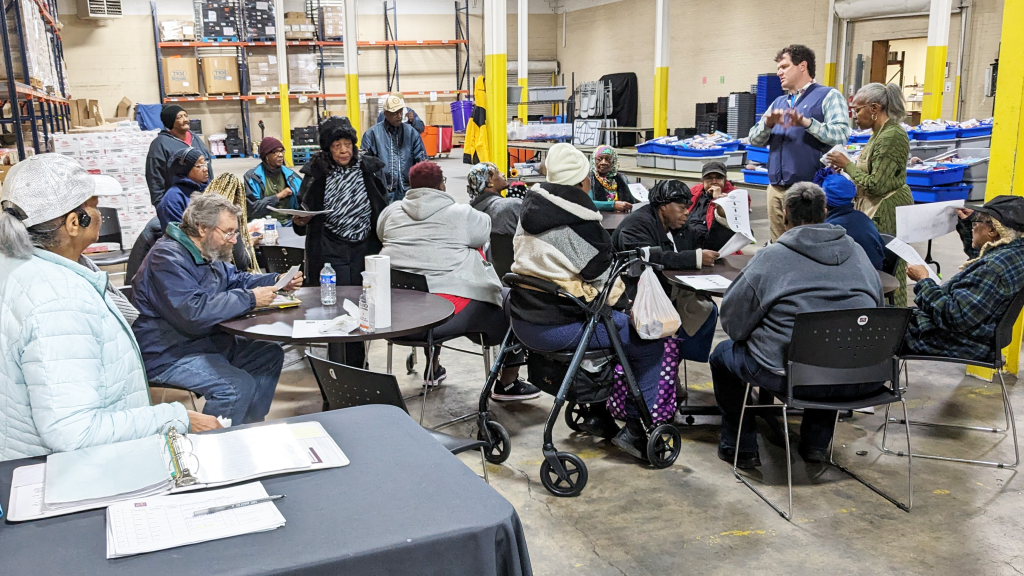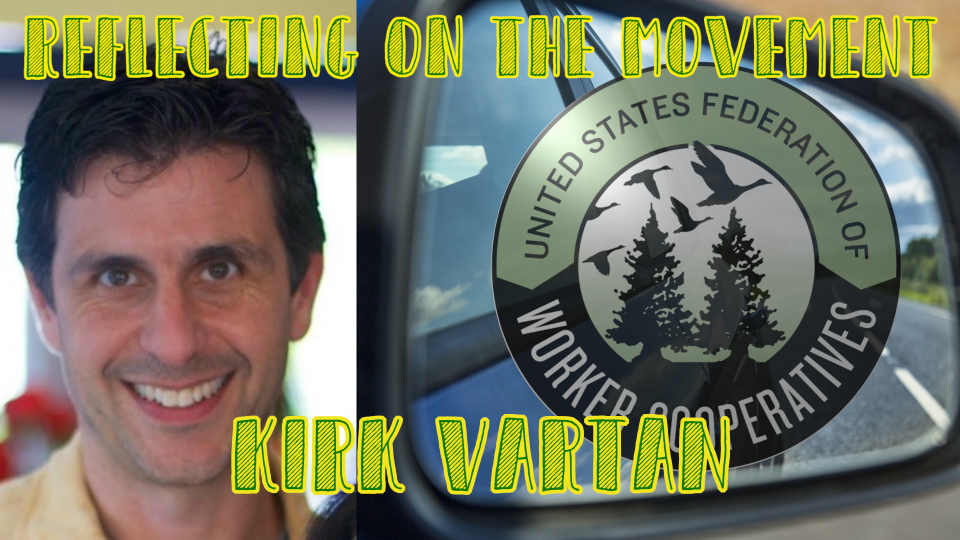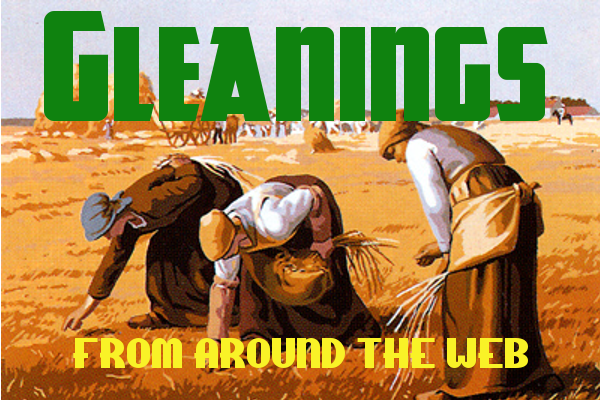This week, Graham Talley and Ashkahn Jahromi, founders of Portland, Oregon's largest float tank center, share the story of how they converted their business to a worker cooperative. Their highly polished presentation walks through the whole process in a straight-forward and approachable manner from the standpoint of exiting business owners, and serves and a nice companion piece to the presentation by Rob Brown and the new worker-owners of Dean's Beans that we shared last week.
Then, Bobby Jones writes about the innovative cooperative model of Atlanta, Georgia's Urban Recipe, that has brought autonomy and independence to its members by providing an alternative to food pantries.
And finally, Kirk Vartan shares his reflections on the the worker cooperative movement and where it should be going.
Turning Float On into a Worker Owned Co-op
by The Float Conference
Ashkahn: So, after we knew that our staff was on board, the first official step was them actually forming a new legal entity, which is the co-op. And because the name Float On was technically taken by our existing company, they needed to come up with a temporary name, to use until the co-op could kind of transfer the rights of Float On over to itself. So our staff met and decided to call themselves the Intergalactic Float Cooperative.
Graham: So the way this works is that this new entity, the IFC, if you will, is actually going to buy all of Float On's assets from us, which will allow them to take over the business. So, we will actually get paid for this conversion of the business. We don't need to donate Float On or anything like that to make this happen.
Ashkahn: The price of the sale is agreed upon between us and the new co-op members, which is our staff, and it's similar to the price we would have gotten just selling on the open market.
The Transformative Power of Urban Recipe’s Atlanta Food Co-op Model
by Bobby Jones
For the last 24 years, JoAnn has spent almost every other Monday morning here. She is the longtime secretary of Co-op 1, a food co-op facilitated by Atlanta-based nonprofit Urban Recipe. Every other week for the past 34 years, folks facing food insecurity have gathered to sort, organize, and distribute food amongst themselves. Unlike a traditional food pantry, those receiving food assistance are members of a co-op that governs itself democratically.
“I originally heard about the co-op from a friend who was a member, and I was just interested in the free food,” Crowder says. “Pretty soon, this co-op became my family. It’s something to do. It’s my reason for getting up in the morning, all of us helping each other out,” she adds.
Housing Cooperatives Grow in Chicago’s Latino Communities
LaRaza — Although the idea of forming the cooperative started in 2017, the acquisition of the first building of this cooperative did not materialize until 2020. This building is located at 1910 S Wolcott in Pilsen and houses six families. Two years later, in February 2022, they acquired the second building located on Morgan Street, with six units as well, and the purchase of the third building located on Oakley Avenue, which also houses six families, was made in November 2022...
Baltimore’s co-ops show the power of a ‘solidarity economy’
The Real News Network — At a recent event hosted by the Baltimore Museum of Industry titled “Work Matters: Building a Worker-Owned Co-op,” Max moderated a panel including workers and representatives from Common Ground Bakery Café, Taharka Bros Ice Cream, A Few Cool Hardware Stores, and the Baltimore Roundtable for Economic Democracy (BRED). He talked to them about how they came to work at these different co-ops, how their businesses transitioned to more cooperative models, and they dig into the nitty gritty of what working at a co-op looks like, what it takes for workers to democratically run a business, and the real challenges, limitations, and rewards that come with this kind of work...
Public luxury for the everyday citizens of Mexico City
The Alternative — The name UTOPÍAS is an acronym for Unidades de Transformación y Organización Para la Inclusión y la Armonía Social, or Units for Transformation and Organization for Inclusion and Social Harmony. I was told Iztapalapa currently has 12 up and running and another 4 in the works. The idea is a network of safe, free, public sites that provide poor and working class people with what they need for the maintenance, enhancement, and enjoyment of everyday life. Food. Health. Elder care. Child care. A cheap laundromat...
Six steps to starting a housing co-op
Co-operatives First — As people struggle to find a place to live that fits their budget, the stability and affordability that housing co-ops can offer is becoming more attractive. In a housing co-op, the focus isn’t on individual ownership or increasing property value, but on ensuring members have stable places to live that emphasize community. There just aren’t enough co-ops to meet the demand...
Like what you find on GEO?
Make a Donation Today!
Your tax-deductible contribution ensures that GEO can continue to provide independent grassroots content about the cooperative and solidarity economy movements.
Got something to say?
Let us know. Send your comments, suggestions, rants and article submissions to editors@geo.coop.
Follow us on Social Media
Mastodon: social.coop/@GEO_Collective
FB: facebook.com/GrassrootsEconomicOrganizing/
Twitter: twitter.com/@GEO_Collective
Our mailing address is:
Grassroots Economic Organizing
P.O. Box 115
Riverdale MD 20738-0115





